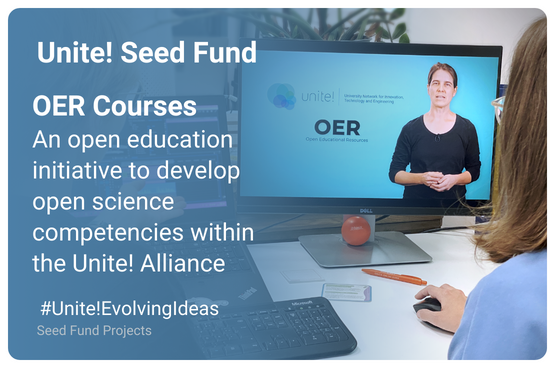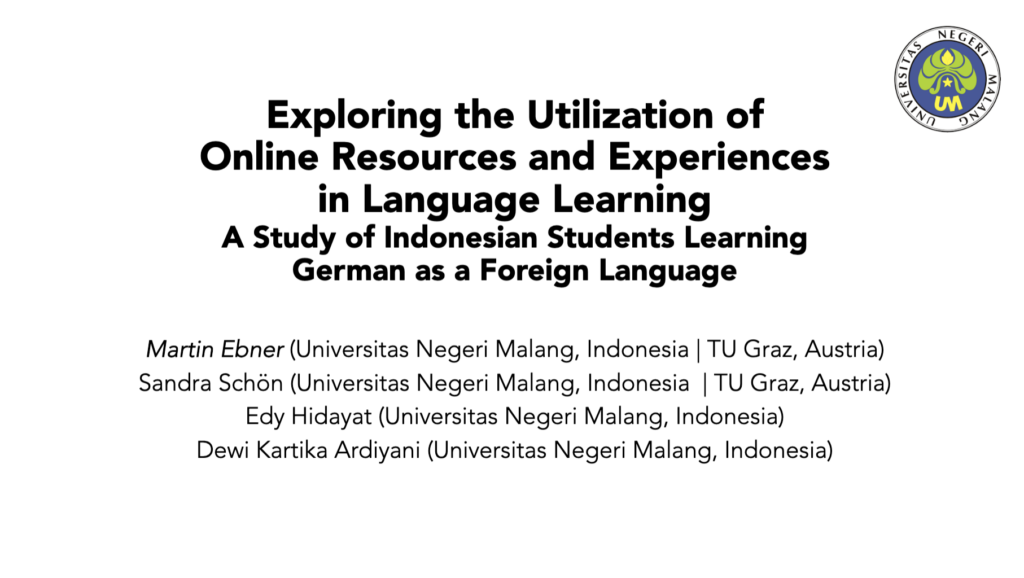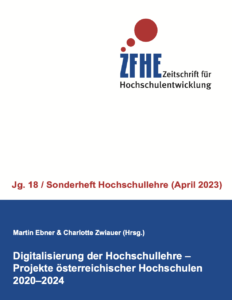In einem kurzen Beitrag zu “Learning Analytics als Instrument für wirkmächtige Mediendidaktik – 10 Jahre Erfahrung im Forschungsfeld” konnte ich im Buch “Didaktik in einer Kultur der Digitalität” unsere Erfahrungen darlegen:
Der Beitrag beschäftigt sich mit Learning-Analytics-Applikationen als Werkzeug für Lernenden und Lehrende. Dabei wird in die Begrifflichkeit eingeleitet, um ein gemeinsames Verständnis zu schaffen und danach entlang von umgesetzten und in der Praxis erprobten Beispielen bisher Erkenntnisse herausgearbeitet. Die Erfahrungen stützen sich dabei primär aus zwei Anwendungsbereichen in den Unterrichtsfächern Mathematik und Deutsch. In der abschließenden Diskussion werden die Herausforderungen und Ziele von Learning Analytics besprochen, die in den dafür nötigen Kompetenzen der Lehrenden münden, um im Sinne einer wirkungsmächtigen Mediendidaktik diese gezielt einsetzen zu können.
Zitation: Ebner, M. (2023) Learning Analytics als Instrument für wirkmächtige Mediendidaktik – 10 Jahre Erfahrung im Forschungsfeld. In: Didaktik in einer Kultur der Digitalität. Brandhofer, G. & Wiesner, C. (Hrsg.). Verlag Julius Klinkhardt GmbH & Co. KG. S. 163 – 176. ISBN 9783781526037




